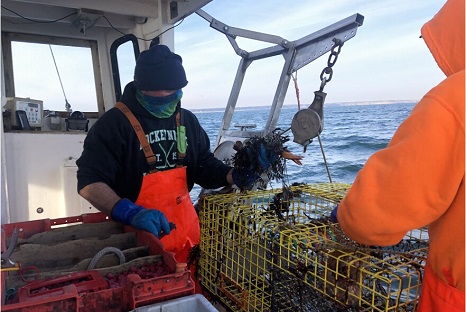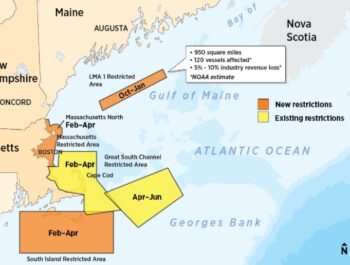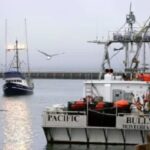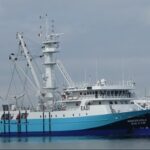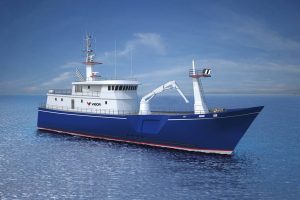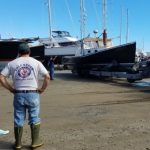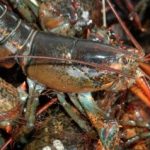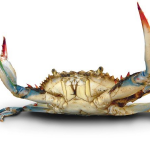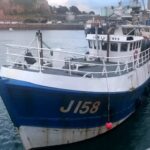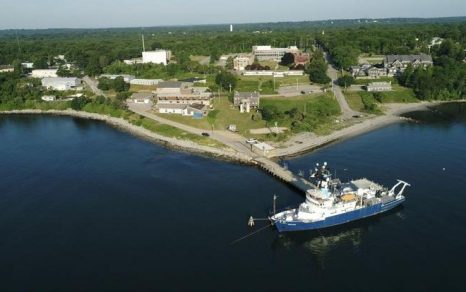Tag Archives: ropeless fishing

NOAA lays out plans for expanded testing of ropeless fishing technology
In an effort to address the two main causes of human-induced whale mortality, vessel strikes and entanglement in fishing gear, the National Oceanic and Atmospheric Administration recently released rules to reduce ship speeds and its “Ropeless Roadmap” to prepare for widespread adoption of ropeless fishing. The vertical lines that connect strings of traps on the ocean floor to buoys on the surface can get caught on a whale’s fins or in its mouth as it swims, leading to death in some cases. There are fewer than 350 North Atlantic right whales, according to NOAA. On-demand fishing gear would eliminate the need for the vertical lines in the water until the lobster trap, pot or gillnet is being hauled. >click to read< 15:50
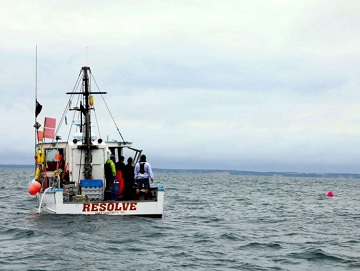
Despite threats from fellow fishermen, Mass lobstermen press to allow ropeless fishing in closed areas
The lobstermen viewed themselves as trailblazers, even calling themselves “Pioneers for a Thoughtful Coexistence”. In an effort to prove that there’s a way for their industry to resume fishing in coastal waters where Massachusetts banned lobstering to protect endangered whales, they have asked regulators to allow them to set their traps without vertical buoy lines. “I’ve been trying my best to get our guy’s back fishing,” said Michael Lane, 46, a lobsterman who fishes 800 traps out of Cohasset. But when Lane’s group presented at a recent public hearing their proposal to fish with experimental rope less gear, which would use remotely triggered inflatable balloons or other devices to surface the traps, they were pilloried by their fellow fishermen. >click to read< 19:20
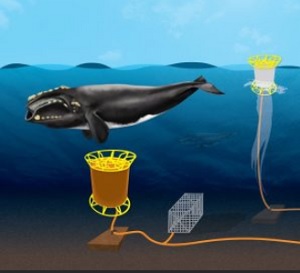
The future of fishing is innovation.
Maine’s lobstermen begin 2022 with a unique opportunity to fundamentally solve the whale entanglement issue. Throughout history technology has been used to improve our lives and solve complex problems. Invention has brought us cell phones, computers, satellites, and soon, self-driving cars and a base on the moon. >click to read< By Zack Klyver 10:55

Lawsuit filed to Protect Pacific Humpback from fishing gear, Can lawsuits save North Atlantic Right Whale?
The Center for Biological Diversity sued the National Marine Fisheries Service today for failing to protect endangered Pacific humpback whales from deadly entanglements in sablefish pot gear off the coasts of California, Oregon and Washington. According to Fisheries Service estimates, the sablefish fishery on average kills or seriously injures about two humpback whales every year. The fishery uses 2-mile-long strings of 30 to 50 pots. >click to read< Can Litigation Help Save the North Atlantic Right Whale From Extinction? – As conservation organizations and governments around the globe grapple with the devastating effects of climate change and overexploitation, the legal battle fought over the critically endangered North Atlantic right whale, one of the world’s most endangered large whale species, may provide insights into how litigation can help, or hinder, efforts to save species from extinction. >click to read< 13:41
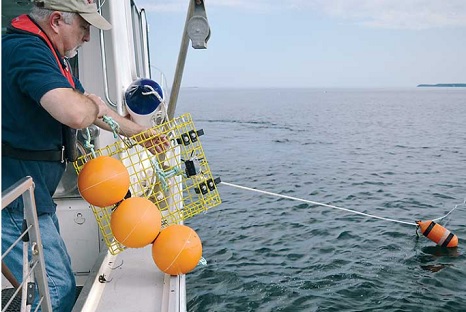
Crackpottery? A Ropeless Future for Lobster Fishing, they say!
The object thrown overboard was not in fact a trap but a ropeless fishing system deployed in a demonstration for passengers on the boat, including a film crew, a reporter and three people who study or advocate for right whales. Zack Klyver chartered the boat and arranged the demonstration. Through his consultancy, Blue Planet Strategy, he has been working as an intermediary between manufacturers, whale advocates and lobstermen, who find themselves on various sides of a regulatory survival equation as the federal government moves to protect endangered right whales. In ropeless fishing, Klyver sees a potential win for everyone involved, but getting there may take time and a fair amount of persuasion. Some funky photos, >click to read< 17:40

Fed Right whale plan could mean lobster industry changes – a reinvention of the fishery as we know it
Federal officials recently released plans,,, But it’s the risk reduction target, an aggressive 98 percent, that Maine Department of Marine Resources officials said means only one thing, “a complete reinvention of the fishery as we know it.” The conservation framework, an addition to the 582-page biological opinion, creates a four-phased approach to all but eliminate the death and serious injury of the whales in federally managed fishing grounds. The first phase calls for a 60 percent reduction in right whale deaths and serious injuries this year. Patrice McCarron, Maine Lobstermen’s Association, fears the industry can’t sustain that level of change. “If you look at the changes we’ve made over the last 25 years, there’s not a lot left to give,”, >click to read< 10:27
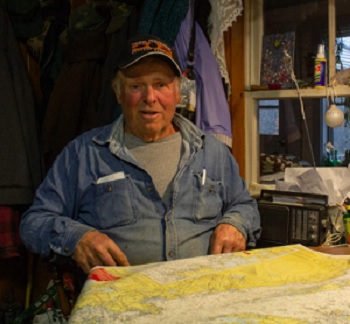
Fishermen, DMR: New North Atlantic Right Whale regulations could cripple lobster industry
The proposal, released in late December 2020, includes measures like regional gear marking, breakaway rope, extra traps per trawl line and restrictions on certain fishing areas. But it is the emphasis placed on ropeless fishing traps that has officials at the Maine Department of Marine Resources most concerned. In its Biological Opinion regarding right whales and the fishing industry, NMFS identifies ropeless fishing as a solution, among others, to reduce whale entanglements that cause death or serious injury. DMR argues that ropeless gear is largely under-researched and unaffordable. DMR used EdgeTech traps to estimate cost increases associated with converting to ropeless fishing,,, An EdgeTech fishing unit costs $3,750, >click to read< 19:36

Ropeless Fishing Shows Promise, But There’s a Catch: Financial, Safety, Technology Challenges
On a cold January morning, a lobster trap sitting on a table at a manufacturing facility in Wareham is rhythmically beeping. Two final beeps have a special meaning. “So that’s the release confirmation,” explained Rob Morris, who sells acoustic release systems for the underwater technology company EdgeTech. These “ropeless” systems do away with the high number of vertical lines that run from buoys on the surface down to traps on the ocean floor. Looking at this table, Morris sees the future of the fishery, and many conservationists share that hope. Ropeless fishing eliminates vertical lines in the water column that are blamed for around half of all reported North Atlantic right whale deaths. >click to read< 10:22

Lobstermen threatened with the extinction of their way of life
The word “extinction” has been thrown around a lot lately by environmental groups,,, Large, well-funded, out-of-state environmental groups would have you believe that these whales are going extinct and that Maine fishing gear entanglement is a major reason why. These groups have proposed things like ropeless fishing and refuse to believe that ideas like this are not practical in Maine. Can you imagine how a fisherman could set his 20- to 30-trap trawl into water 300 to 400 feet deep, not knowing where any of his competitors’ trawls might have been set days before? >click to read< 11:37
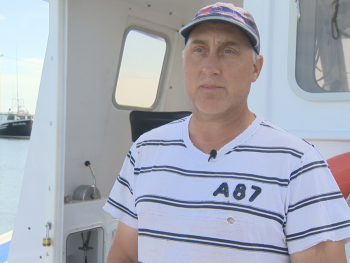
Ropeless Fishing: ‘We’ve got to do our part’ to prevent right whale deaths, Yes! Slow ships down
As a Halifax-based company seeks input from the fishing community for a prototype of ropeless fishing gear, a New Brunswick fisherman has another idea about how to decrease the dangers to North Atlantic right whales. “People should slow down and be more careful,” says lobster fisherman Jean-Guy Gallant.,,, While Gallant fishes the Northumberland Strait – which is not in the same area several of the endangered whales have been found dead – he says he has concerns about going ropeless. “What happens if the mechanism doesn’t work?” he asks. “The trap will stay on the bottom so we won’t be able to fish it.” >click to read<
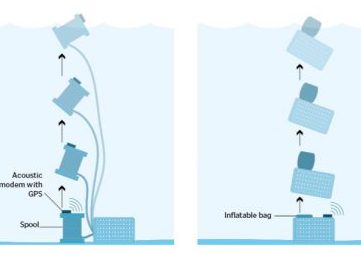
Ropeless lobster fishing? Stakeholders get a progress report
The Ropeless Consortium, a group of scientists and other interested stakeholders hosted by the Woods Hole Oceanographic Institution, met Nov. 6 to consider the prospects of ropeless fishing to reduce whale entanglements with lobster gear. “It was very cool to see how advanced the technology is and the many companies and groups working on development around the world,” Zack Klyver, lead naturalist for Bar Harbor Whale Watch, who attended the meeting, told the Mount Desert Islander. >click to read<10:30
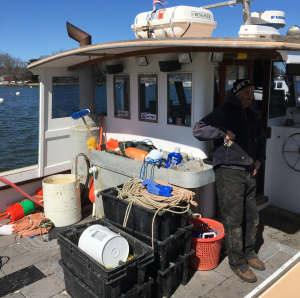
The Future of Lobstering May Mean Fishing by Computer
Lobster fishing used to be pretty straightforward. But there may be big changes ahead for fishermen in New England. “First thing you have to remember is, you’re taking the lobster industry and flipping it around on its head and shaking it,” Mike Lane said, sitting on his lobster boat in Cohassett Lane. Lane is a life-long fisherman. His dad fished for lobster before him. He’s concerned about the proposals. “How are you going to teach 60-year old men that don’t use computers to use a computer?” >click to read<08:51
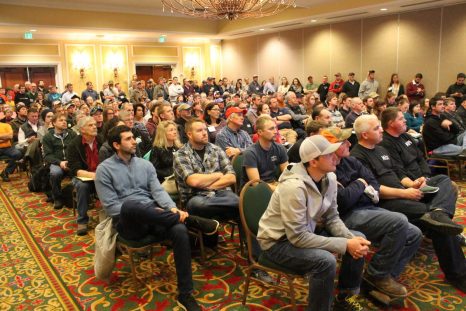
Lobstermen pack meeting concerning right whales, possible gear changes at the Maine Fishermen’s Forum
Lobstermen from all over the state packed the Rockport Room at the Samoset Resort to overflowing Friday to hear about the potential for ropeless fishing and use of break-away lines to help save the endangered right whale. The panel discussion March 2 at the annual Maine Fishermen’s Forum brought fishermen together with several experts including scientist Mark Baumgartner of Woods Hole Oceanographic Institute, Amy Knowlton of the New England Aquarium and Mike Asaro of NOAA Fisheries. >click to read< 10:06
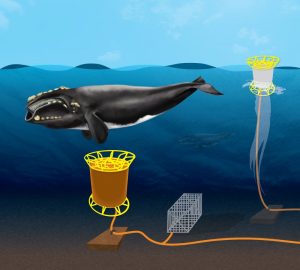
Cape Cod environmentalists plan to wreck their lobster Industry to save the whales
Scientists trying to convince New England lobstermen to invest in “ropeless fishing” to cut the risk current fishing methods pose to northern right whales, The Boston Globe reported. Scientists at the Woods Hole Oceanographic Institution say ropeless fishing will allow lobstermen to continue in their livelihood, but without long ropes running from buoys on the ocean’s surface to lobster traps on the ocean floor.,,, Scientists warn if this technology is not pursued, the only other option to save the whales is government regulation of fishing seasons and areas, which would devastate the industry much more than ropeless fishing. >click to read< 09:07






